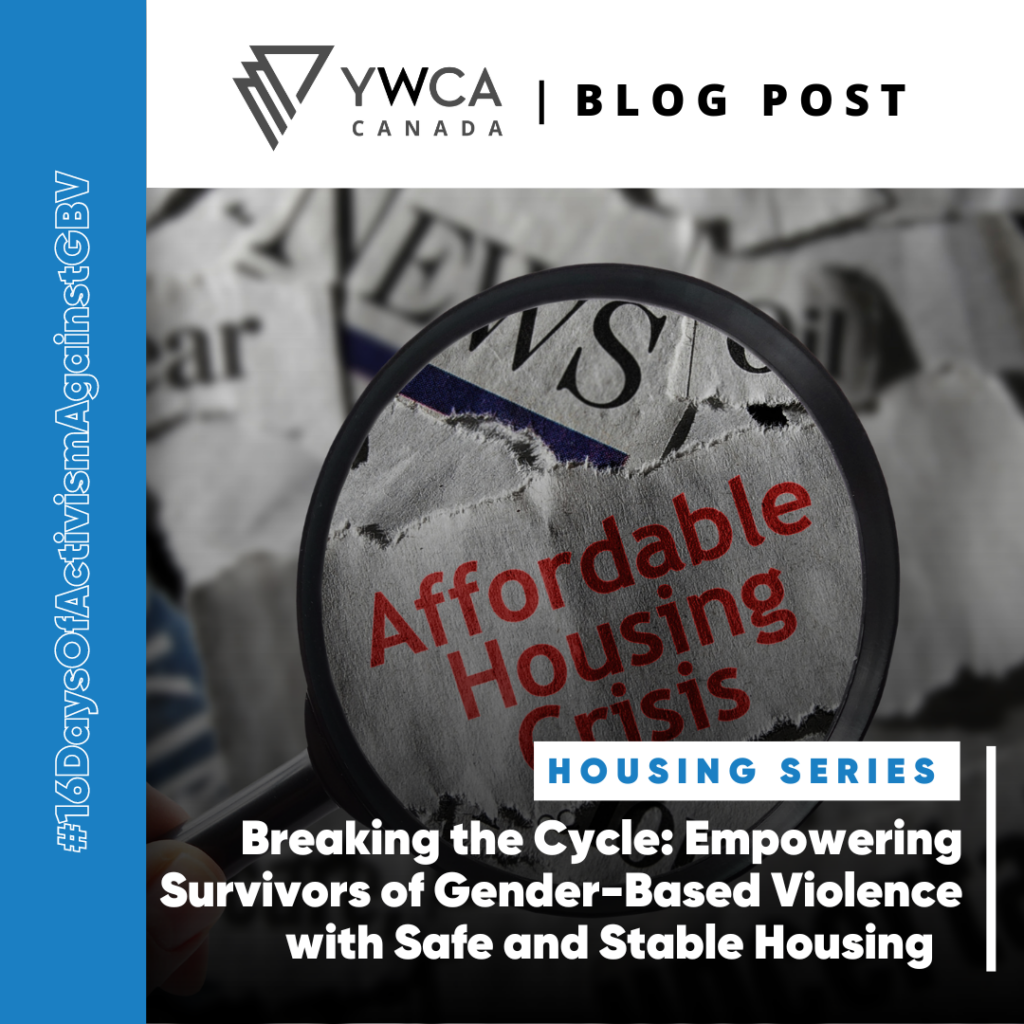Read: 3min
When it comes to the plight of survivors of gender-based violence (GBV), the struggle to find permanent housing and escape the cycle of violence can be overwhelming. Statistics paint a stark picture: approximately 1000 women, girls, gender-diverse individuals, and children are unable to access Violence Against Women (VAW) shelters due to limited space and painstaking eligibility requirements. These shelters were initially conceived as short-term solutions, yet many survivors find themselves unable to leave these precarious environments for years due to the unavailability of affordable housing (NWAC, 2018).
In Canada, the journey to escape violent circumstances is riddled with obstacles, and one of the major roadblocks survivors face is the scarcity of affordable housing options. This crisis is particularly acute in metropolitan cities like Toronto and Vancouver, where the demand for shelter spaces far surpasses their availability. Additionally, rural and remote regions of Canada, who have a predominantly large Indigenous population, face complex challenges in providing affordable housing making it increasingly difficult for survivors to change their circumstances.
The systematic failure to offer safe and accessible housing for those affected by violence, coupled with timely survivor supports, fundamentally violates their right to live free from harm and have a secure, affordable place to call home.
This housing crisis underscores the need to prioritize shelter space and safe homes for mothers and their children seeking refuge. One in four women-led single-parent households are living in unaffordable, temporary, or inadequate housing. Moreover, almost 90% of families in Canadian emergency shelters are headed by single women, compounding the stress they already endure. These mothers face the unsettling prospect of losing custody of their children if they cannot transition from shelters to affordable housing, thereby further exposing their children to instability and violence.
To break the cycle of chronic and intergenerational homelessness, there’s a pressing need for sustainable funding, gender-sensitive planning in housing and homelessness efforts, and a focus on healing and wellness for those on the cusp of embarking on a violence-free future.
In response to this dire need, YWCA Canada, the nation’s largest shelter provider for women, girls, and gender –diverse individuals escaping violence, has launched the NESS Fund (National Emergency Survivor Support Fund). This program is a direct lifeline for survivors, designed to remove the financial barriers preventing them from leaving abusive situations and rebuilding their lives. With the NESS Fund, survivors can access funds directly to cover first and last month’s rent, security deposits, furniture, and household supplies. However, this is not a replacement for accessible, appropriate and affordable housing options that meet the need of survivors. Additionally, local YWCA Member Association in communities across Canada provide job search services, financial literacy training, legal rights education, and childcare support, making it possible to address the demand in community-specific and culturally sensitive ways.
In light of the urgent need to prioritize purpose-built facilities aimed at tackling these societal issues, a holistic approach is paramount. This brief overview of the multifaceted challenges and opportunities within the GBV, housing, homelessness, and safe consumption sector are becoming increasingly evident. There is a clear need for sustainable funding, gender-sensitive planning, and increased support for frontline workers.
We need to build on our collective commitments to supporting the creation of spaces that can effectively address the unique challenges faced by individuals affected by gender-based violence and homelessness. Policies and programs that promote dignity, safety, and inclusivity for all can help survivors break free from the cycle of violence and build a brighter, more hopeful future.
Learn more about I know a place campaign
Join us at our powerful discussion “When Home Isn’t Safe: A Panel Discussion on Housing & Gender-Based Violence ” on November 23th from 6PM to 7.30PM (ET)
